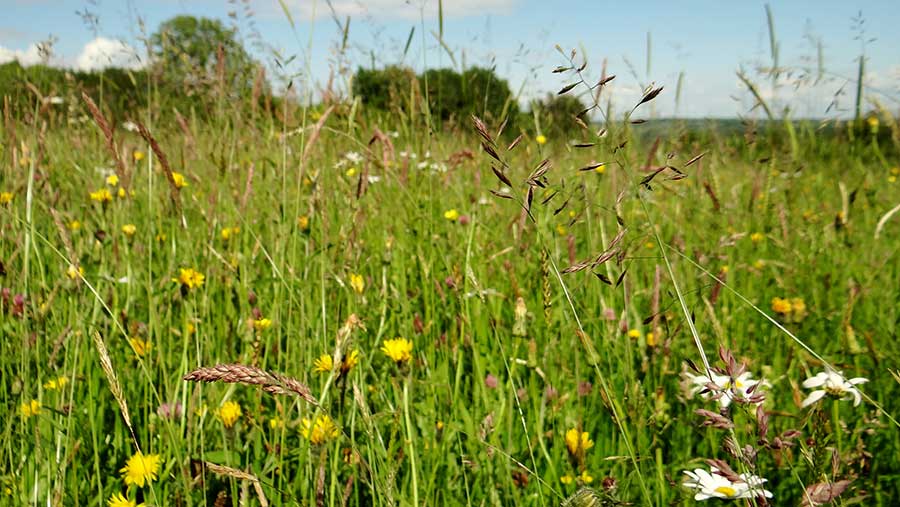Loss of farmland for nature recovery is a ‘huge worry’
 Wildflower meadow at Pentwyn Farm © Eirlys Howard
Wildflower meadow at Pentwyn Farm © Eirlys Howard The Farmers’ Union of Wales (FUW) has said the continued loss of agricultural land for projects to aid nature recovery is a “huge worry” for the country’s food producers.
The union’s concern comes as Radnorshire Wildlife Trust looks set to purchase a 66ha livestock farm in Mid Wales, which the charity says will be “transformed to diverse natural habitats managed extensively for wildlife”.
See also: NFU Cymru sets out strategy for future tree planting in Wales
Pentwyn Farm, near Llanbister Road in Powys, will soon be added to the Trust’s portfolio of nature reserves, including the neighbouring Cnwch Bank and Tylcau Hill to the north, and Fronwen Wood, to the south east.
Trust chair Jenny Chryss said the purchase, which is in its final stages and expected to be completed in October, was made possible by generous financing terms.
Ms Chryss added: “This is a hugely exciting opportunity to do something really special to help nature’s recovery in this part of Mid Wales.
“It’s one of the most beautiful parts of Britain, yet wildlife has been struggling as many natural habitats have been lost and climate change is taking its toll. We are extremely grateful for the highly generous financing made available to us which has allowed us to make this purchase.”
The Trust insists that the purchase is not based around rewilding. Livestock will be introduced to manage grassland and a community farm project could be established on some of the land, it said.
‘Priced out’
But FUW president Glyn Roberts warned that Wales’s farmers are being priced out by such purchases.
“We are seeing more and more farms and land parcels being purchased by either companies and individuals from outside Wales for planting trees to offset their carbon emissions, charities wishing to plant trees or ‘rewild’ land, and even Natural Resources Wales which already manages more forestry and land in Wales than any other body.
“This presents a huge worry for our farming and food producing communities, with local buyers invariably being outbid,” said Mr Roberts.
